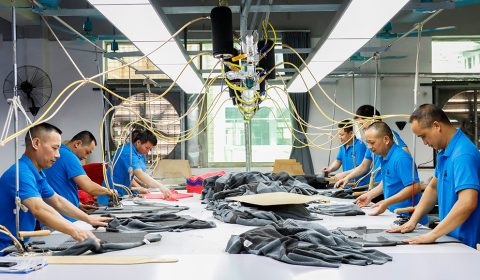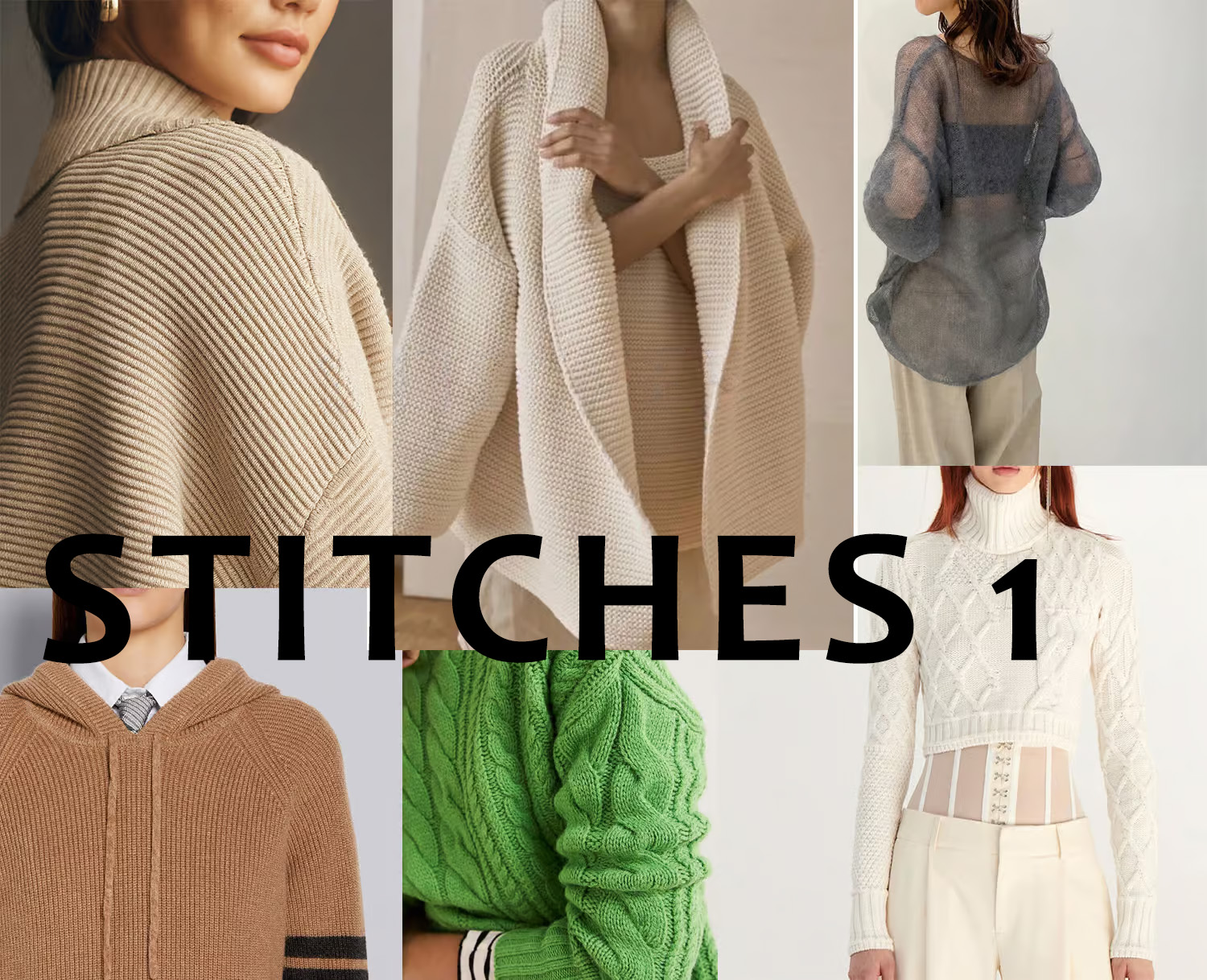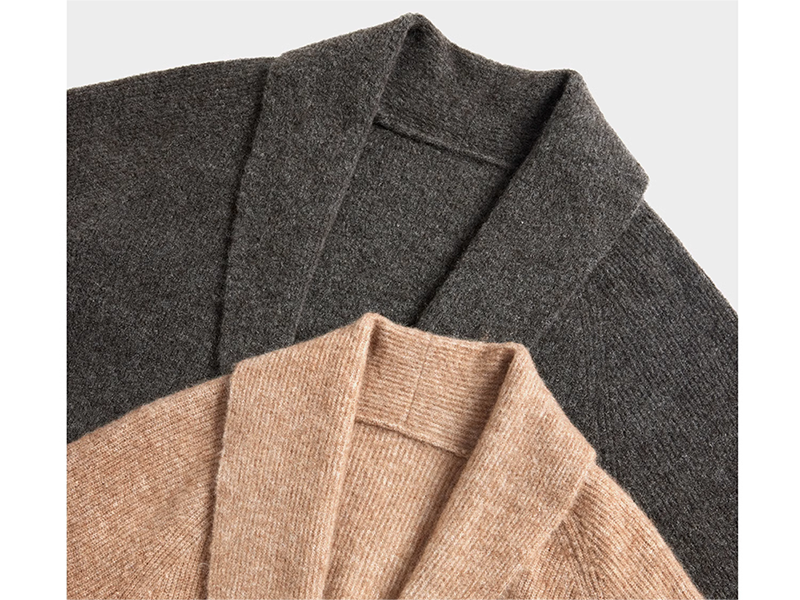- Fineness: Merino wool fibers are extremely fine, with a diameter of about 17.5 microns per strand, with the best reaching 11.7 microns. As an example, Merino wool is thinner than a human hair strand, only 1/10th of a hair strand, while ordinary wool is much thicker, with each strand about the same thickness as a hair strand, and some even thicker than a hair strand.
- Softness: The thickness of the scales on the surface of merino wool fibers is thinner than that of ordinary wool, and the density of coverage is smaller than that of ordinary wool. The number of fibers can be up to 120, so Merino wool products feel soft and smooth. Ordinary wool products feel more rough, the number of strands of a strand in about 80. This is why the merino wool clothing close to the body does not stick and ordinary wool close to the body will have a prickly feeling of the reason.
- Warmth: Merino wool is a kind of active fiber, has a very good warmth effect, with the wearer’s body temperature changes and make temperature control response, bring warm in winter and cool in summer comfortable body feeling. Ordinary wool is not as warm as merino wool and has no thermostatic response.
- Warmth absorption: Merino wool is able to absorb 30% of its own weight in moisture, and the moisture will be discharged out according to the most air, while the drainage and breathability of ordinary wool is relatively poor. Elasticity: The elasticity of merino wool is not as good as that of the wearer’s body temperature.
- Elasticity: Merino wool is very elastic and highly resilient, and most of the merino wool products are treated with special anti-shrinkage treatment and can be machine washed, and after machine washing, its natural properties and advantages will not be affected. And ordinary wool elasticity is small, poor rebound production is not so many complex processes, relatively easy to deformation, pilling, etc. and can not be machine washable.
- Price: merino wool belongs to the natural protein fiber, plus merino sheep production is limited, so the price will be higher than ordinary wool letter.
Advantages of Merino wool
- Easy care Most Merino wool garments can be machine washed and tumble dried, easily solving the common “how do I wash wool?” problem.
- Stain Resistant Merino wool fibers have a naturally protective outer layer that helps prevent the absorption of stains. Merino wool is generally non-static, so it attracts less dirt and lint.
- Warm and cool Unlike synthetic materials, Merino wool is an active fiber that responds to changes in body temperature. As a result, it helps keep you warm when it’s cold and cool when it’s hot.
- Soft to the skin Merino wool fibers are extremely fine and are far more bendable than traditional coarse wool fibers. As a result, Merino wool feels soft and has a luxurious lightness against the skin.
- 100% renewable With Australian sheep producing a new set of wool every year, wool is a completely renewable fiber.
Merino Wool Price
Merino wool is a high-quality wool that is prized for its softness and smoothness as well as its excellent warmth-retaining properties. Its price is affected by a number of factors, including market demand, production variations, and quality. Generally speaking, the price of Merino wool is relatively high. Merino wool enjoys a high reputation in the textile industry and is considered one of the finest wools available. Its excellent quality keeps its price at a high level. At the same time, its uniquely soft texture and excellent warmth-retaining properties make it a highly sought-after and valuable raw material in the high-end apparel and textile market.




 English
English Deutsch
Deutsch Français
Français Italiano
Italiano Español
Español Русский
Русский Polski
Polski Nederlands
Nederlands Svenska
Svenska

